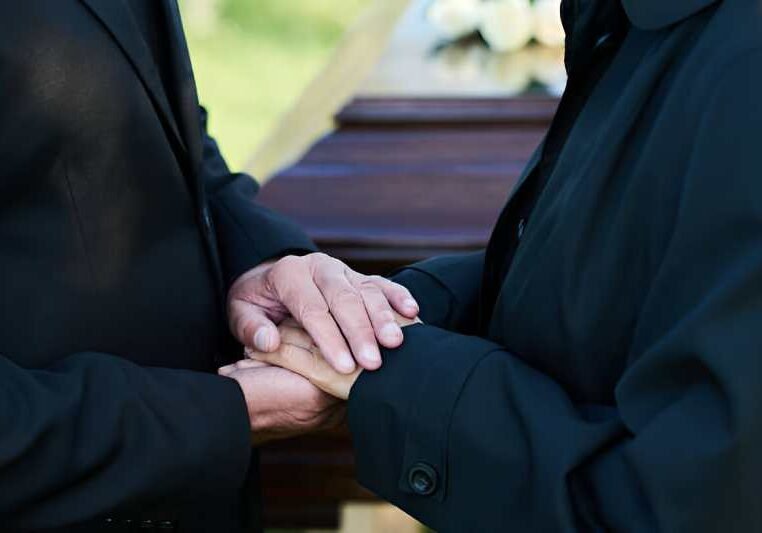What to Do When Someone Dies

Guidance and Support Through a Difficult Time
The loss of a loved one is a deeply emotional and often overwhelming experience. At Wealden Funerals, we are here to guide you through each step with warmth, care, and clarity. From the moment of passing to the final arrangements, we offer compassionate, professional support, ensuring everything is handled with dignity and in accordance with current legal requirements.
As of 9th September 2024, new national regulations require all deaths to be reviewed by a Medical Examiner before certification. Below, we outline each key step to help you navigate the process with ease and understanding.
Step 1: Immediate Action
-
At Home
Contact the deceased’s GP or call 111 for out-of-hours care. They will advise on confirming the death and explain what happens next.
-
In a Hospital or Care Home
If the death occurs in a hospital or care home, the staff will take responsibility for notifying the relevant authorities and guiding you through the next steps.
Step 2: Contact a Funeral Director
-
Once the death has been verified, contact Wealden Funerals. We’ll support you through the arrangements and guide you with the paperwork, offering assistance and reassurance every step of the way.
Step 3: The Medical Examiner Process (New from September 2024)
A Medical Examiner will now review all deaths:
-
They will assess the medical notes and speak with the attending doctor.
-
Depending on their review, they may either authorise the doctor to sign the Medical Certificate of Cause of Death or refer the case to the Coroner for further investigation if needed.
This ensures transparency and fairness in the review process.
Step 4: Registering the Death
You must register the death within 5 days (England & Wales). The registration can be done by:
-
A close relative
-
A person present at the time of death
-
The person arranging the funeral (but not the funeral director)
-
The occupier of the premises where the death occurred

You’ll need to provide:
-
Full name and details of the deceased
-
Date and place of death
-
Last known address
-
Occupation
-
Details of any surviving spouse or civil partner
-
Information about any state benefits or pensions
The Registrar will issue:
-
Green Form: Required for burial or cremation
-
BD8 Form: For pensions and DWP
-
Death Certificate: Certified copies can be purchased for banks, insurers, etc.
Local Registrars
East Sussex
-
Brighton & Hove Register Office
-
Eastbourne Register Office
-
Lewes Register Office
West Kent
-
Tunbridge Wells Register Office
-
Maidstone Register Office
-
Sevenoaks Register Office

Step 5: If the Coroner is Involved
Some deaths need to be referred to the Coroner, especially if:
-
The death was sudden or unexplained
-
No doctor attended the deceased recently
-
It occurred during surgery or was work-related
The Coroner may:
-
Request a post-mortem or CT scan
-
Issue an Interim Certificate while an inquest is pending
-
Forward documentation to the registrar if the cause is natural
Step 6: Tell Us Once Service
Some deaths need to be referred to the Coroner, especially if:
Departments Notified
-
Department for Work and Pensions (DWP)
-
HMRC
-
DVLA
-
Passport Office
-
Local council (council tax, electoral roll, housing benefit)
What It Doesn’t Cover
-
Banks, utility companies, or private services
-
Overseas authorities
-
Legal matters such as probate or will execution
This ensures transparency and fairness in the review process.
Step 7: Planning the Funeral
Once the death is registered and paperwork is in place, we will help you begin making funeral arrangements. Whether you choose a burial, cremation, or a personalised celebration of life, we are here to ensure the service honours your loved one’s memory with care and respect.


Step 8: Legal, Financial, and Practical Matters
After the funeral:
-
Notify banks, insurers, utility providers, and other relevant organisations.Notify banks, insurers, utility providers, and other relevant organisations.
-
Begin the probate process (if there is a will) or follow intestacy laws (if there is no will).
-
Consider seeking legal advice for estate management or property matters.
Step 9: Emotional Support
Grief is a personal journey, and no one should walk it alone. Whether through friends, family, or professional counselling, seeking support is crucial. We can connect you with local and national bereavement services, ensuring you have the support you need.

Local Grief Support Services
Local Bereavement Support
-
East Sussex: Bereavement support services via the local council
-
West Kent: Support through Kent County Council’s bereavement services
Helpful Contacts to Notify
-
Car insurer: Notify the insurer, especially if the deceased was the policyholder.
-
Social services or district nurses: For returning equipment or medications.
-
GP or hospital: To cancel any future appointments.

We’re Here When You Need Us
At Wealden Funerals, we offer a caring hand during difficult times. For immediate support or personalised guidance, please call us on 01273 965443 or contact us [online].
Let us help you navigate the path ahead—with compassion, clarity, and care.
